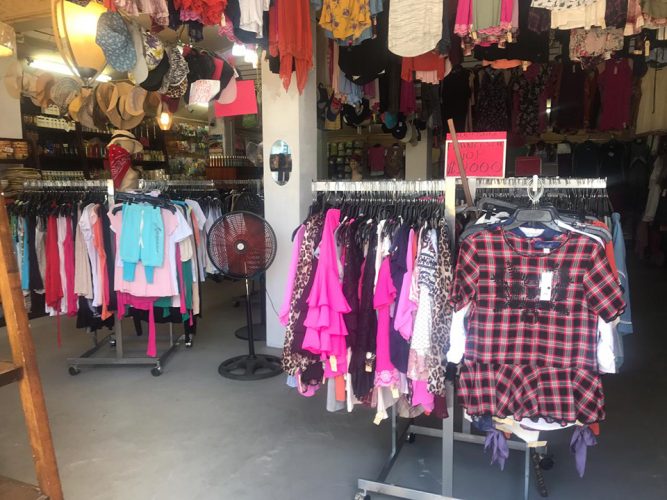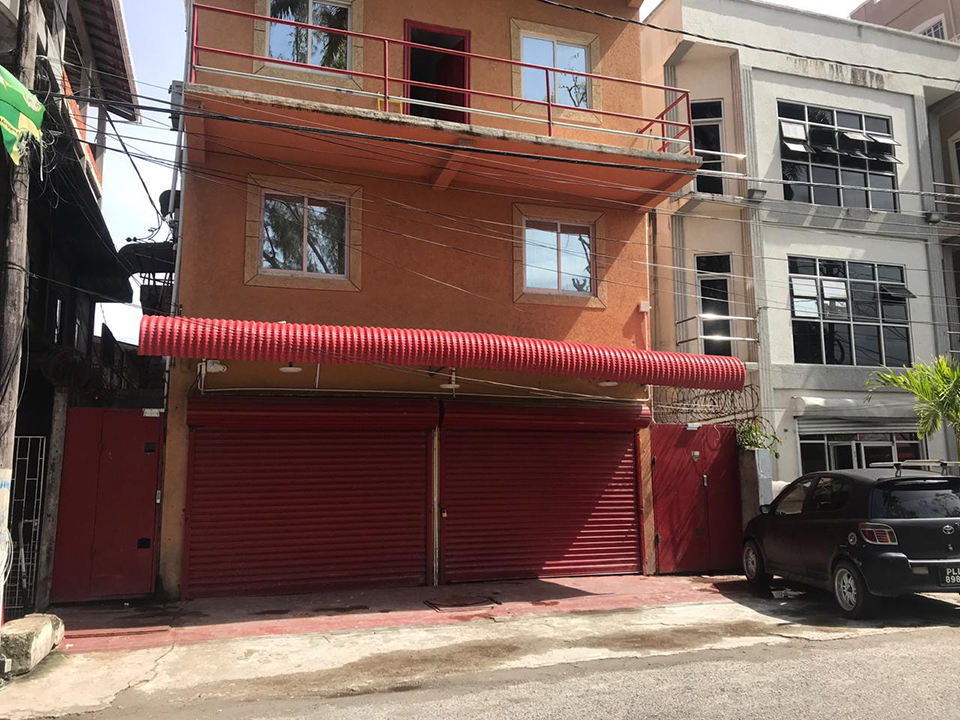The daily influx of Cuban nationals into Guyana had inspired niche businesses catering to their needs but when COVID-19 hit, these flourishing businesses were forced to either downscale or close their operations.
Stores and hostels were the businesses that first felt the impact of COVID-19 as the Cubans were no longer coming and shopping. Despite many Cubans being marooned here for months, entities providing accommodation disclosed that occupants either doubled up in rooms or moved to cheaper lodgings. And for the stores, owners reported that there was no spending power with Cubans reduced to just window shopping.
Many Cubans have also stayed away as a result of the United States Embassy here temporarily halting its visa processing as part of its COVID-19 measures. Many used to come to apply for US visas and attend interviews.

The scenes of stores filled with Cubans shopping or the pavements on Regent Streets overflowing with Cubans coming out of stores lugging large shopping bags have become non-existent.
The few nationals that remain here, Stabroek News was told, are focussed on survival and have taken up any job that they can find in an effort to make ends meet.
A visit by Stabroek News to several Regent Street stores found that the stores were empty for most of the day despite the welcoming invitation signs hanging in the stores.
Natasha Singh, manager of American Variety Store on Regent Street explained that her business used to be frequented by Cubans but since the pandemic hit, their regular Cuban customers have become scarce.
She noted that during the initial stages of the pandemic they were forced to close the doors of the business but since they have reopened, there has been a dramatic decline in their operation.
“The Cubans would normally come and shop for themselves for personal hygiene products and these Victoria Secret body sprays and lotion. So we are accustomed to having business from them. But since COVID-19 we haven’t been doing good business,” Singh related.
She added that even when customers were not buying, they would frequently visit the store and window shop but now that too has become a thing of the past. There were no customers inside the store when Stabroek News visited. Singh said that she had to lay off a few of her staff.
Over at Bai-Hai Trading, a Chinese-owned variety store, Cashier Hnang Xing shared a similar story.
It has become general knowledge that with affordable merchandise available, the visiting Cubans engaged in merchandising have been shopping in large quantities at the Chinese-operated stores in the city central.
“It has been very very very slow. Cubans have stopped shopping if they buy now, it is one or two items for themselves. [They are] not buying in bulk,” he explained.
Xing related that the aisles of the store were once filled with customers but when Stabroek News visited, this was not the case. In the same breath, he explained that they had to let go their Spanish speaking sales staff who were hired to assist Cuban shoppers.
“Business just get slow and every day is [worse] we had to let some of our workers stay home because there is no business. You can see [as he pointed to the empty aisles in the store] nobody shopping not even the Guyanese,” said Xing.
Meanwhile over at Nova Hotel on Cummings and Robb Street, a popular accommodation hostel, the Managing Director, Debbie (only name given), said the business was staying afloat using the revenue generated through the limited tenants in the building.
She explained that most persons, who were staying at the hotel had moved after the borders closed on March 17 as they were unable to keep up with payments. She noted that some of the occupants had have their status changed from guests to tenants and special rates had to be worked out.
“We had to do that just to keep the business going. We even had to get some stoves and give them just so that they can cook their own food. This COVID-19 has hit us hard we are barely doing business now,” she disclosed.
Stabroek News also observed several other accommodation businesses including the popular Hotel Guyana, closing its operations during this period.
Translator and document service-provider, Marcie (only name given), explained that her business saw a significant decline after the US embassy here suspended the processing of visas. She explained that her business has since been closed and it is uncertain whether she will be able to restart again.
The young entrepreneur related that apart from assisting clients to fill up documents, she would accompany them to their visa interview and translate for them. On a weekly basis she said she would work with at least five persons but noted that the business fluctuates.
The woman stated that she has not worked in months and her survival is now dependent on her savings.
Prior to the COVID-19 pandemic, every day hundreds of Cubans would arrive in Guyana via Copa Airlines, Caribbean Airlines, and Aruba Air, resulting in a brisk demand for accommodation, transportation, and food.
This high arrival rate also resulted in restaurants catering to the Cuban palette popping up in the commercial district of the city. Other entrepreneurs created businesses by providing translation and documentation services.
This newspaper had reported that Cubans in the city have become increasingly integrated, with many finding their foothold in local society by taking up employment in the private sector as sales representatives, taxi drivers, construction workers and food vendors.






